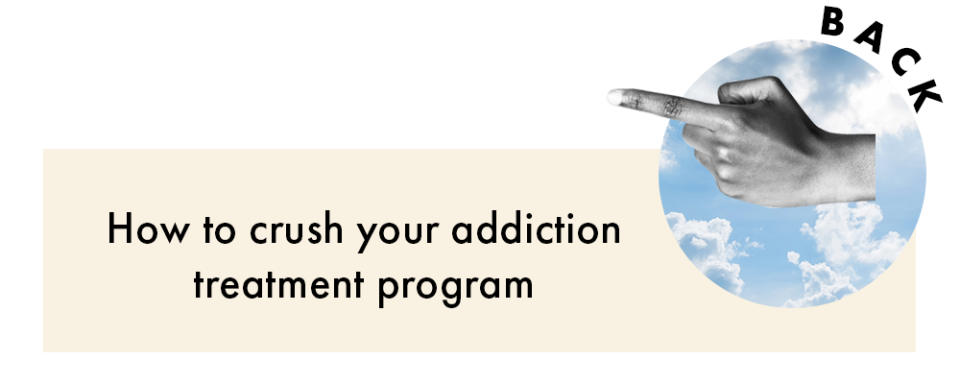You Went to Rehab. Now Here’s How to Stay Sober

DON’T: Go out with people who are using.
Or hang in the same old places. “Can you meet up at a coffee shop instead of a bar?” suggests Vanessa E. Ford, an addiction counselor and licensed psychotherapist. When everyone’s posting drunk Instas on weekends, call your sober buddy and see if she wants to start a new Hulu show with you.

DO: Assess your friendships.
No need to ghost your BFF just because she likes the occasional marg, but you should limit contact with anyone who has their own addiction issues or can’t actively support your journey.
DON’T: Skip your meds.
Medication-assisted treatment (MAT) for opioids can help you be more successful in your recovery. Talk to your doc about how long you should stay on them.
DO: Line up non-pharmaceutical help too.
Most rehabs can help you find outpatient programs, one-on-one psychotherapy, a halfway house or sober living, an on-call sober coach, and/or AA or NA meetings.
DON’T: Jump into a new relationship.
Many programs advise not dating for a year after getting sober. Because (a) it’s time to focus on sobriety and (b) dating can be a source of anxiety. “Sometimes you meet somebody and it doesn’t work out,” says Ford. “There’s a tendency to use a substance to cope.”
DO: Let dates know you’re sober.
If and when you do hit the scene, add the “no drinking, no drugs” category to your profile. “If you’re trying to meet someone, they have to understand you’re in recovery, otherwise what’s the point?” says Kate, 35, who is more than two years sober.
DON’T: Go back to typical college housing.
The most steel-willed person might falter when their roommate is hosting a pre-game.
Adrienne Otto Frame, EdD, associate vice president and dean of students at the University of Central Florida (UCF), recommends moving into a dry or “healthy living” dorm; even the smallest colleges typically have these. You might also want to consider living off-campus or in a halfway house near school, which your treatment center can help you find.
DO: Figure out how you can continue your treatment on-campus.
While you might dread going back to the partying environment, schools like UCF are increasingly equipped to help students through their Collegiate Recovery Programs (CRPs), which may include on-campus therapy, AA and NA meetings, and doctors who can assist with your MAT or antidepressants. Talk to your dean or academic adviser, the health center, or someone like the head of student life to find out more about what’s offered.



('You Might Also Like',)

